Estimated reading time: 10 minutes
The Chinese market has endless manufacturing possibilities for businesses, although knowing the tips for how to find a reliable factory in China makes all the difference.
Knowing these things, from unparalleled productive abilities to very promising margins of profit, sourcing from China is extremely rewarding; the trouble is knowing where to begin in this often difficult landscape.
Successful findings of dependable Chinese factories can be realised when challenges and opportunities are understood.
Following a clearly outlined process allows you to establish a partnership that can create profitability to its fullest, but with a guaranteed consistency of quality.
Keep reading to learn more about the product sourcing process in China.
Different Ways to Find Reliable Chinese Factories
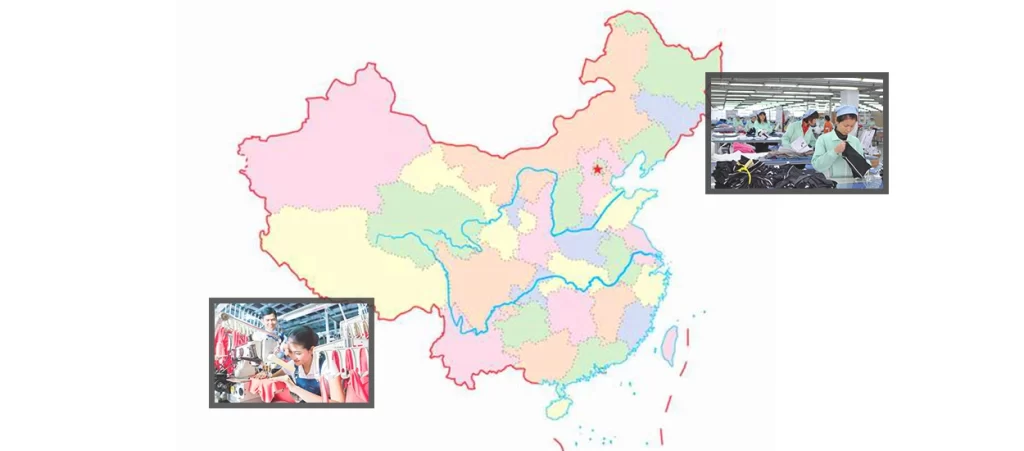
The first question when sourcing for manufacturers is, “Where?” There are several places you can potentially connect with manufacturers. Here, we explore each and offer a brief introduction so you know what to expect.
1) How To Find Reliable Factories in China: Sourcing Agent
Hiring a sourcing agent might be your best move. As a beginner, the Chinese market is too big to navigate. A China sourcing agent offers you the necessary guidance for a small fee.
The sourcing agents are locals with extensive knowledge of Chinese manufacturers. Hence, they can help you spot the right ones. They also help with logistics, quality control, and negotiations.
2) How To Find Reliable Factories in China: Internet
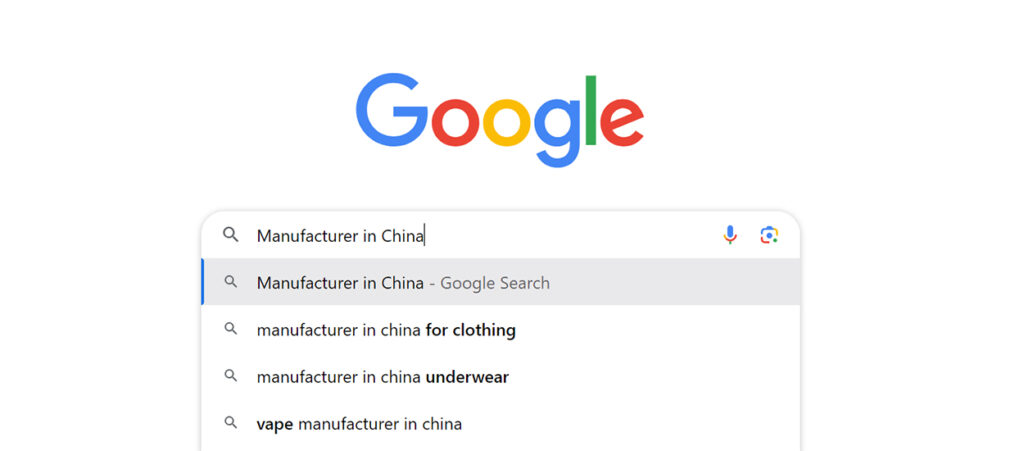
The internet has overturned how we approach businesses, including sourcing for manufacturers. You can access a long list of Chinese manufacturers with just a few clicks. You can easily opt for a Google search.
However, a more helpful method would be through an online marketplace. You have options like Alibaba and DHgate. These platforms let you read customer reviews to help make the right choice.
Online B2B platforms such as Alibaba, Global Sources, and Made-in-China.com are excellent resources for finding reliable suppliers.
These platforms allow you to search for specific products or industries, read supplier reviews and ratings, and even contact them directly.
| Alibaba VS Made-in-China | Alibaba | Made-in-China |
| Product Range and Specialisation | Offers a vast range of products, including consumer goods, electronics, apparel, and much more. It’s suitable for buyers looking for both small and large quantities. | Specialises more in industrial and manufacturing products. It’s often preferred by buyers interested in machinery, heavy equipment, and raw materials. |
| Supplier Verification and Quality Control | Offers a system of supplier verification, with different levels of verification providing a sense of security to buyers. However, due to its vast size, the platform may have a mix of both high-quality and lower-quality suppliers. | Also has a robust supplier verification system, possibly with a more rigorous focus on industrial and commercial suppliers. This may provide a higher level of reliability for buyers in those sectors. |
| Pricing and Minimum Order Quantities | Known for competitive pricing and flexible MOQs, which makes it attractive to small and medium-sized businesses as well as individual buyers. | Might have higher MOQs due to its focus on industrial products, catering to larger businesses, or bulk orders. |
3) How To Find Reliable Factories in China: Industry Network

The industry network can also offer insights into locating a Chinese manufacturer. You can connect with industry associations related to the category you are interested in.
Rapport with professionals. They might already have Chinese manufacturers and give recommendations.
4) How To Find Reliable Factories in China: Trade Fairs
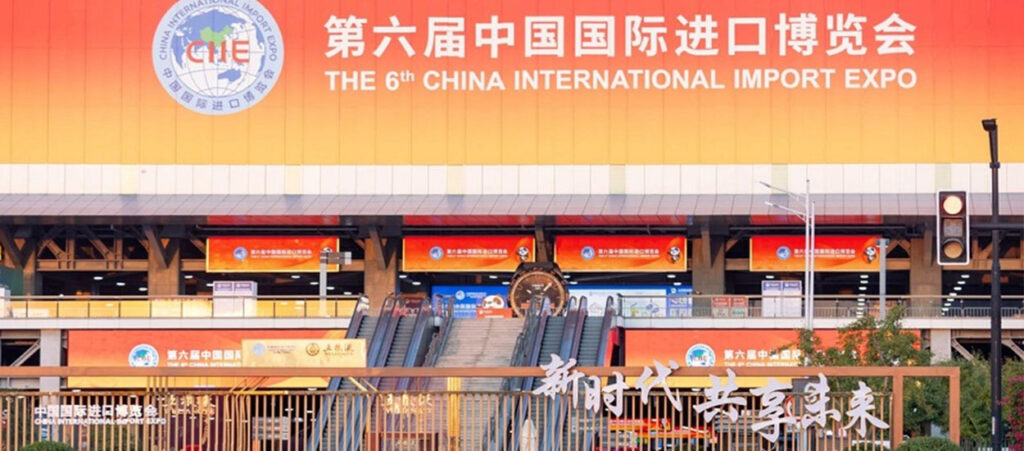
Trade Fair is yet another crucial opportunity to connect and meet manufacturers upfront. You can discuss with the manufacturer, gauge their capabilities, and see if they are a fit.
The trade fairs in China are significant because they allow you to bond with suppliers. Plus, they offer excellent market insights. Here are some of the famous trade fairs in a table:
|
Trade Fairs |
Date |
City |
Exhibition center |
|
The spring session: April-May The autumn session: October-November |
Guangzhou |
The National Pavilion of the Canton Fair |
|
|
November 5 to 10 |
Shanghai |
The National Exhibition and Convention Centre |
|
|
China Yiwu International Commodities Fair |
November 13 to 15 |
Yiwu |
Yiwu International Expo Centre |
5) How To Find Reliable Factories in China: Chinese Wholesale Market
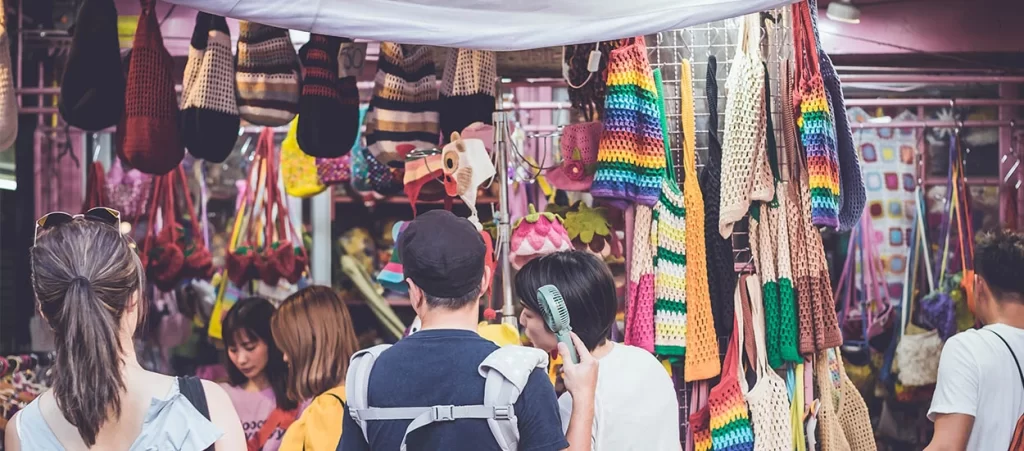
You can take a walk to the market and look around. This way, you can see their products and manufacturing processes first-hand.
It allows you to gauge the products’ quality before agreeing to any commitment. The table below shows the major wholesale markets in China and their product categories.
| Product Categories | China Wholesale Markets | Suggested reading |
| Clothing and Textiles | •Keqiao Fabric Wholesale Market in Shaoxing •Sijiqing Clothing Wholesale Market in Hangzhou |
Importing Clothing and Textiles from China |
| Watches | •Zhan XI Watch Wholesale Market •South Watch Centre |
Import Watches from China |
| LED Lights | •Guzhen Lighting Plaza | Importing LED Lights from China |
| Accessories & Jewelry | •Yiwu International Trade City | Importing Accessories & Jewellery from China |
| Kitchen Utensils | •Yongkang International Hardware & Kitchenware City | Import Kitchen Utensils from China |
| Electronics | •Huaqiangbei electronics market | Import Electronics from China |
| Toys | •Chenghai Toys Market | Import Toys From China |
| Bags | •Baiyun World Leather Trading Centre | Import bags from China |
| Shoes | •Wenzhou Shoe Market •Jinjiang Footwear Market |
Import shoes from China |
| Battery | •Huaqiangbei Electronics Market | Import a battery from China |
These regions are famous for some kinds of products. As the table has highlighted, navigating the Chinese market with this information is easier. However, the regions are not exclusive.
You can find a mix of different products in each region. Working alongside a sourcing agent makes the process much more efficient.
Choosing the Right Chinese Factories
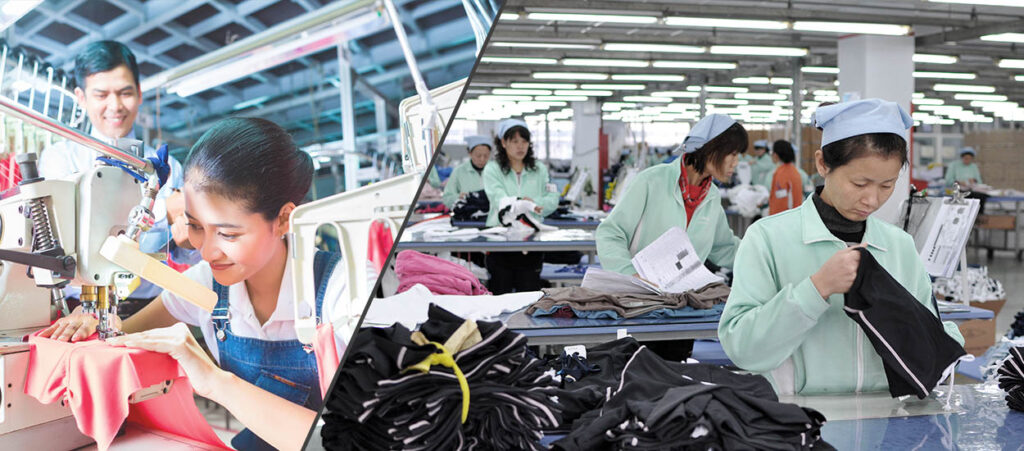
How to find suitable Chinese suppliers? Well, you know where they are, but how do you separate the genuine ones? Follow these steps to have a seamless sourcing experience.
1) Research the Supplier
When you are starting, you need to do your due diligence. Thoroughly research the supplier’s profile, MOQ, capabilities, customer reviews, and certification. You should only commit to manufacturers with a proven track record of quality.
2) Verify the Supplier’s Credentials

Before you commit, verify the supplier’s credentials first. Request documents like a license, export certificate, and other relevant documents. It ensures you are partnering with a reliable and legitimate business.
3) Pay the Manufacturer A Visit
Visit the manufacturing company. When you visit, monitor and gauge the company’s production capacity and quality control. The visit also bridges the gap, ensuring you can forge interpersonal relationships with the manufacturer.
4) Asking for Samples
Requesting samples before mass production is important. It offers insights into the potential results of your collaboration. It also allows you to ask for changes, if necessary, and evaluate the quality of the production.
5) Remain in Active Contact with the Manufacturer
Manufacturing is only one of the many steps required to import from China. Hence, you need to be in steady contact with the manufacturer to know what’s happening.
From production progress to shipping, you need your manufacturer in the loop. It is the only way to map out a plan effectively. It also opens opportunities for negotiations.
Tips to Communicate with a Chinese Manufacturer
A seamless sourcing process is a must. At the centre of a successful sourcing experience is good communication. Here are some tips that can help you facilitate communication and make it more seamless.
1) Ask Questions
Ensure you ask the right questions to gain insight into their professionalism. Here are some questions:
- What is your minimum order quantity (MOQ)
- Can you provide the relevant business license for your factory?
- What certifications do your products have?
- What markets do you mainly operate in?
- How much can the price be reduced if I buy in bulk from your factory?
2) Get a sourcing agent
As a local sourcing agent who has worked with many people online, it can be difficult to conceptualise the amount of stress you would go through to get the correct picks. You don’t have to go through the rumble.
Instead, you can leave all tasks to those who have experience and are familiar with the stress of the business.
Avoiding Scams When Sourcing from Chinese Manufacturers
Importation is home to several scams. If you look away for too long, your hard work might be swept from under your feet like it didn’t happen. Here are the steps to prevent collaborations with fraudulent and scandalous suppliers.
1) Opt for secure payment options

When you pay for your products, opt for secure payment options. Some suppliers might suggest unreliable options.
Instead, choose escrow services such as Alibaba Assurance and PayPal. This method mitigates fraud. It ensures manufacturers only get paid after you receive and approve the products.
Note: Avoid making upfront payments without any safeguards. Know the best way to pay Chinese suppliers.
2) Reducing Currency Risks

Trading with Chinese manufacturers has financial risks due to fluctuating exchange rates. However, you can consult a financial advisor to set a strategy to ensure minimal risks.
The financial advisor would recommend a walk-around. This process will ensure the exchange rates don’t tamper with your potential profits.
Another popular scam is bad-quality products. It is common among newbies as they can’t commit to the necessary quality control measures.
One way to combat this is to hire a third-party quality inspector in China. Fortunately, we have the hands you need. We have worked with many American and British businesses. Furthermore, we ensured they got the quality they requested. We do this by following the process at every step.
Effective Communication Tips for Working with Chinese Manufacturers

Chinese manufacturers have a different language and culture. These differences might pose a challenge during communication. It can also potentially hamper a smooth run. However, it is not a tall task.
Here are tips and tricks you can leverage to ensure you communicate your needs:
1) Get a translator

Suppose you can speak Chinese! However, for a non-speaker, hire an actual translator. These translators ensure your supplier understands what you mean.
Don’t use online translations. They often remove tone and other essential elements of language. It might lead the manufacturer to misread what you are trying to convey.
2) Understand Cultural Differences
China is very different from the rest of the world. When you are sourcing for manufacturers, ensure you understand these differences. Note their manner of negotiations, sizes, and other integral factors.
Overall, you must be clear and concise when passing your message. You need to use direct and clear specs. This way, your manufacturer knows what you need and can provide it without fail.
Start Sourcing with Confidence
Having difficulties finding manufacturers in China or don’t know where to find a manufacturer in China who can deliver your quality specifications?
With OwlSourcing, you can easily find Chinese manufacturers, helping you find an affordable and reliable China manufacturer.
Whether you want to find a Chinese supplier, evaluate Chinese factories, or determine how to choose a quality Chinese factory, our experience ensures that you contact the best options.
Whether you don’t know how to contact Chinese manufacturers, our team provides smooth negotiation and communication services.
Let us assist you in identifying a reliable Chinese manufacturer and simplifying your sourcing process—call us today!
Read More:
- How to Source Products From China
- Top Ways to Find a Reliable Sourcing Agent in China
- How to Find China Shipping Agents?
- How To Buy Wholesale From China?
Final Thoughts!
Sourcing from Chinese manufacturers has its merits. However, if you don’t follow the proper steps, you can lose your capital to low-quality goods.
As a beginner, this article offers a thorough guide to ensure you can test every step. If you still need help, you can contact us today. Our team provides help at almost no cost until you get the right manufacturer.

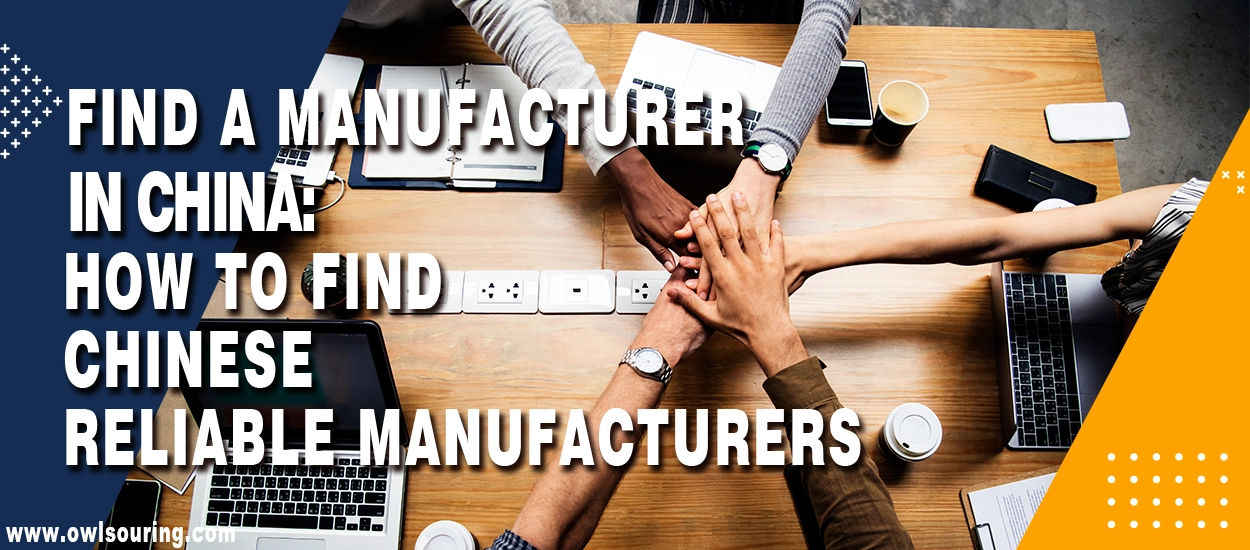

2 thoughts on “How To Find Reliable Factories in China?”
How can I trust supplier reviews and ratings on Chinese platforms like Alibaba? Do you have any tips or strategies for verifying the credibility of suppliers on these platforms?
Hello Mana,
To assess supplier credibility on Chinese platforms like Alibaba, don’t just rely on star ratings
1. Read detailed reviews, especially from verified purchases. Look for a substantial number of consistent, quality reviews over time.
2. Be cautious of fake reviews, marked by overly enthusiastic or generic language.
3. Engaging directly with the supplier can provide insights, as can starting with a small test order.
4. Check for business certifications and research the company’s background.
5. Consider Owlsourcing,this is my most recommended way😎